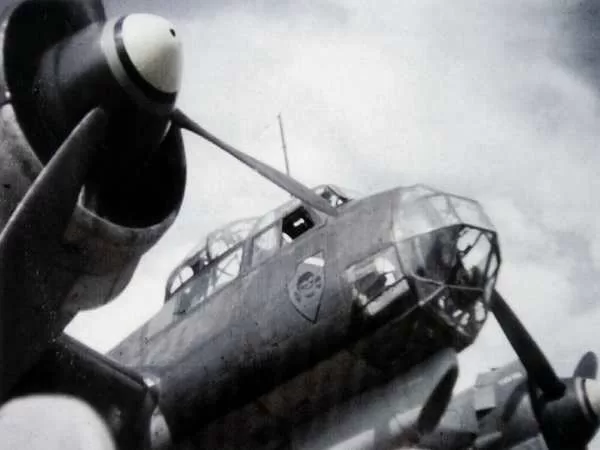The Untold Story: America’s Role in Shielding Japan’s Unit 731 from War Crimes
Just one week after Japan’s surrender in World War II, Colonel Sanders, part of the first American contingent to land in Japan, embarked on a mission to uncover Japan’s biological warfare operations. Tasked with locating the infamous Unit 731 and its leader, Ishii Shiro, Sanders spent three months interrogating key military figures such as Yoshijiro Umezu, Ishii’s deputy Col. Tomosada Masuda, and germ bomb expert Major Jun’ichi Kaneko. Despite extensive questioning, Ishii himself remained elusive.
Key Points
- Unit 731
- Japanese biological warfare
- Ishii Shiro
- WWII war crimes
- Douglas MacArthur
- Col. Sanders Unit 731
- Lt. Col. Ryoichi Naito
- Camp Detrick
- Arvo T. Thompson
- Joseph B. Keenan
- Maj. Gen. Charles Willoughby
- International Military Tribunal for the Far East
- WWII human experiments
- U.S. biological warfare research
- Cold War biological warfare
Deception and Intrigue
Upon arriving in Japan, Sanders found himself deceived by his interpreter, Lt. Col. Ryoichi Naito, a former student of Ishii at the Tokyo Army Medical College. Naito’s past included a failed mission to acquire yellow fever strains from the Rockefeller Institute in New York, which later saw him become Ishii’s right-hand man at Pingfang.
Desperate to secure data from Unit 731’s experiments, Sanders approached General Douglas MacArthur with a controversial proposal: “My recommendation is that we promise Naito that no one involved in BW will be prosecuted as war criminal.” MacArthur quickly agreed. By September, Sanders discovered Unit 731’s involvement in human experiments, but MacArthur’s response was tepid: “We need more evidence. We can’t simply act on that. Keep going. Ask more questions. And keep quiet about it.”
A Change in Command
Sanders’ investigation ended abruptly after just ten weeks, and Lt. Col. Arvo T. Thompson, a veterinarian from Camp Detrick, took over. Sanders, stricken with tuberculosis, never returned to Japan. Before his illness, he instructed Thompson to focus on the anthrax experiments and the Uji bomb. Thompson’s arrival coincided with the International Military Tribunal for the Far East’s trial of Japanese Class A war criminals.
The Interrogation of Ishii Shiro
From January 17 to February 25, 1946, Thompson interrogated Ishii, who had faked his death to avoid capture. Ishii’s tactic was to speak minimally and downplay the scale of biological warfare research. He admitted no human experiments or involvement of Emperor Hirohito, shouldering all responsibility himself. Despite occasional boasts about his extensive knowledge, Ishii’s reticence left Thompson largely in the dark.
Suppression of Justice
Following MacArthur’s hint, Chief Prosecutor Joseph B. Keenan, under pressure from MacArthur’s intelligence chief, Maj. Gen. Charles Willoughby, suppressed Soviet accusations against Japanese biological warfare criminals. Despite efforts by Lt. Col. Thomas H. Morrow and David N. Sutton to gather evidence in China, the Unit 731 case was quickly dropped on August 29, 1946.
MacArthur wielded immense power, capable of altering sentences imposed by the International Military Tribunal for the Far East. Although Keenan technically derived his authority from the U.S. government, control of the prosecution fell to MacArthur, who prioritized obtaining Unit 731’s data over pursuing justice.
The Ethical Dilemma
Authors Williams and Wallace argue that the exoneration of Ishii and his colleagues in exchange for their research data was largely orchestrated by MacArthur. However, Sheldon Harris’s research reveals that U.S. scientists, particularly those from Camp Detrick, were equally complicit, seeing immense value in the data obtained from Unit 731.
In April 1947, General Allen Waitt sent bacteriologist Norbert Fell to Japan to assess the progress of Japan’s biological warfare. Fell found Ishii and his associates eager to share valuable data in exchange for immunity from war crimes. They insisted on written guarantees, leading MacArthur to recommend granting immunity to secure detailed information on Japan’s biological warfare program.
A Stark Choice
The State-War-Navy Coordinating Committee faced a critical decision. In a report comparing Japanese and Nazi war crimes, it acknowledged that experiments on humans, like those conducted by Unit 731, had been condemned at the Nuremberg Trials. Despite this, the committee concluded that the value of Japanese biological warfare data to U.S. national security outweighed the benefits of prosecuting war criminals.
Despite strong objections from the State Department, which warned of international law violations and potential embarrassment for the U.S., the committee accepted MacArthur’s recommendation. They decided to keep the information from Japanese sources top secret and avoid using it as war crimes evidence.
The Cold War Context
The belated approval of MacArthur’s recommendation on March 13, 1948, must be viewed against the backdrop of the burgeoning Cold War. Winston Churchill’s “Iron Curtain” speech in March 1946 and the Berlin Blockade in June 1948 highlighted the escalating tensions between the U.S. and the Soviet Union, driving the U.S. to prioritize gaining an edge in biological warfare.
MacArthur’s Authority
MacArthur’s authority extended to granting immunity to Unit 731 members, an authority respected by Washington. By 1947, MacArthur had shifted his focus from prosecuting war criminals to stabilizing Japan, even at the expense of justice. This pragmatic approach, combined with his near-autonomous rule in Japan, enabled him to shield Unit 731’s members from prosecution, ensuring their research data remained a closely guarded U.S. secret.
Conclusion
The story of America’s deal with Japan’s Unit 731 is a stark reminder of the ethical compromises made in the name of national security. As the Cold War dawned, the U.S. chose to prioritize the strategic value of biological warfare data over justice for the victims of Unit 731’s horrific experiments. This decision, shaped by geopolitical realities, continues to resonate as a sobering example of the complex moral landscape of wartime and post-war politics.

